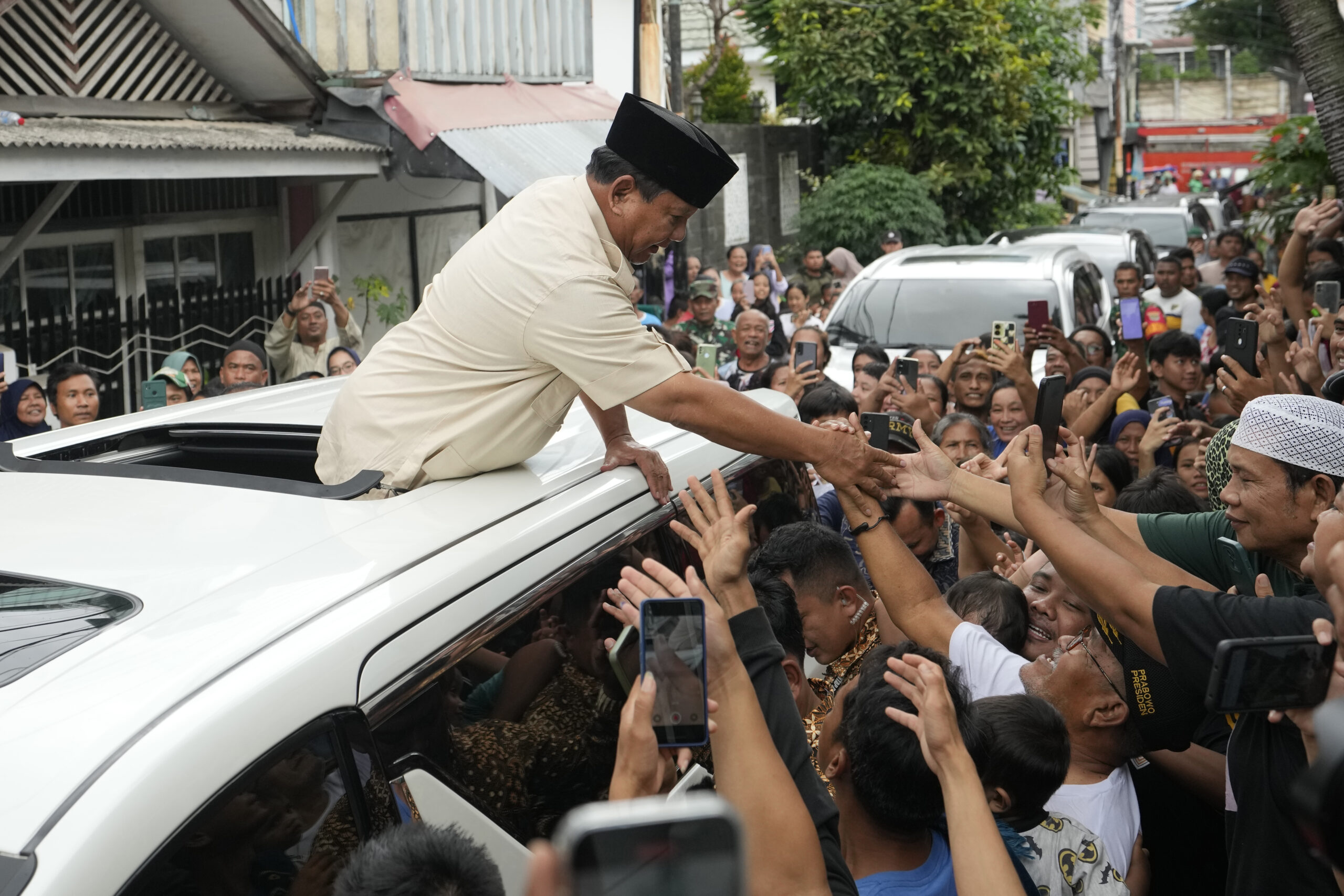JAKARTA, Indonesia (AP) – Leaders from various countries extend their congratulations to Prabowo Subianto following his apparent victory in Indonesia’s presidential election. However, concerns arise among human rights activists who view him as a potential threat. Subianto, the 72-year-old Defence Minister, lacks previous elective office experience, yet he is poised to lead Indonesia, a diverse nation with a thriving economy fueled by global demand for natural resources. Nonetheless, he faces challenges such as global economic distress and regional tensions, including territorial conflicts and the US-China rivalry in Asia.
Subianto’s victory marks a significant comeback, considering his expulsion from the Indonesian army over allegations of torturing dissidents and years of travel bans to the United States and Australia. His declaration of victory comes after unofficial tallies indicate a substantial lead over two other contenders. If the official count confirms his win, he is set to take office in November.
The Defence Minister pledges to continue the modernisation efforts initiated by the outgoing president, Joko Widodo. These efforts have contributed to Indonesia’s economic growth by focusing on infrastructure development and leveraging the nation’s abundant resources. Notably, Subianto aims to follow through on Widodo’s ambitious project—the construction of a new capital on Borneo, about 2,000 kilometres away from the current congested capital, Jakarta.
Despite being a longtime rival of Widodo and previously refusing to accept defeat in the 2019 elections, Subianto’s acceptance of the defense chief position under Widodo’s second term served as a catalyst for his remarkable comeback. His running mate is Widodo’s son, and he gained tacit support from the outgoing leader.
Subianto’s background and temperament differ starkly from his predecessor. Known for his temper and fiery speeches, he comes from one of Indonesia’s wealthiest families, with a father who served as a minister under both Suharto and the country’s first president, Sukarno. In contrast, Widodo rose from a common background and often mingled with working-class crowds during his presidency.
The uncertainties surrounding Subianto’s governance include how he will handle political dissent, street protests, and critical journalism. Despite potential challenges, he currently enjoys widespread support, with unofficial results showing him securing over 55 per cent of the vote in a three-way race.
Human rights activists express concerns about Subianto’s ties to the authoritarian regime of Suharto, with some seeing it as an ominous sign. Amnesty International’s executive director in Indonesia warns of potential challenges ahead. Protests in Jakarta claim electoral fraud without presenting evidence, reflecting the polarised sentiments surrounding Subianto’s rise to power.
On the international front, Subianto’s foreign policy is expected to balance ties with both Beijing and Washington, continuing Widodo’s approach. This delicate balance has facilitated significant Chinese trade and investment in Indonesia while maintaining defence ties and military exercises with the US.
While leaders from Australia, Singapore, and Malaysia extend their congratulations, the US State Department issues a statement acknowledging Indonesia’s democratic process without specifically mentioning Subianto. As Indonesia awaits the official election results, the uncertainties surrounding Subianto’s leadership and the potential implications for domestic and international dynamics remain subjects of ongoing analysis and discussion.





